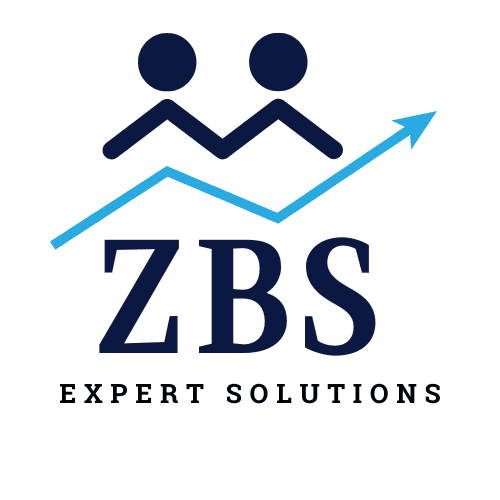
In today’s competitive business landscape, companies need to adopt efficient strategies to manage customer interactions, track leads, and drive sales growth. One of the most effective ways to achieve this is by leveraging cloud-based tools for customer relationship management (CRM). Cloud-based CRM solutions offer sales and marketing teams the flexibility, accessibility, and automation needed to streamline operations and enhance customer engagement.
In this article, we will explore how CRM toolshosted in the cloud are transforming sales and marketing strategies and why businesses should invest in these solutions to stay ahead of the competition.
What is Cloud-Based CRM?
A cloud-based CRM is a customer relationship management system hosted on remote servers rather than on a company's local infrastructure. It allows businesses to store, manage, and access customer data from anywhere, using an internet connection. Unlike traditional on-premise CRMs, cloud-based CRM solutions are scalable, cost-effective, and require minimal maintenance, making them ideal for businesses of all sizes.
Key Benefits of Cloud-Based CRM for Sales & Marketing Teams
Enhanced Accessibility and Remote Collaboration
Sales and marketing teams often work in different locations, making collaboration a challenge. With a cloud-based CRM, team members can access customer data, sales pipelines, and marketing analytics from any device, at any time. This flexibility is especially beneficial for:
Remote sales teams who need real-time access to customer information.
Marketing professionals who require instant insights into campaign performance.
Managers and executives who want to track team performance without being physically present.
By enabling seamless collaboration, a cloud-based CRM ensures that everyone is on the same page, improving efficiency and productivity.
Streamlined Lead and Contact Management
Capturing and managing leads is a crucial aspect of sales and marketing. CRM tools help businesses:
Organise customer data in one centralised system.
Track interactions, follow-ups, and conversions.
Assign leads to sales representatives based on predefined criteria.
With automation features, businesses can prevent lost leads, ensure timely responses, and improve overall conversion rates.
Automated Sales Processes for Higher Efficiency
Manually tracking sales activities can be time-consuming and prone to errors. Cloud-based CRM tools automate key processes such as:
Lead scoring and prioritisation.
Sending follow-up emails and reminders.
Generating quotes and invoices.
By reducing manual work, sales teams can focus more on building relationships and closing deals rather than administrative tasks.
Improved Customer Engagement and Personalisation
Personalisation is key to winning customer trust and loyalty. With a cloud-based CRM, businesses can:
Store detailed customer histories, including past purchases and interactions.
Segment customers based on preferences and behaviour.
Send personalised emails, offers, and recommendations.
By leveraging data-driven insights, sales and marketing teams can create more targeted and meaningful customer interactions.
Seamless Integration with Marketing Automation Tools
A cloud-based CRM integrates effortlessly with email marketing software, social media platforms, and other cloud-based tools, enabling marketing teams to:
Launch automated marketing campaigns.
Track customer engagement metrics.
Align marketing efforts with sales objectives.
This integration ensures that marketing campaigns are data-driven and directly contribute to revenue growth.
Real-Time Reporting and Analytics
Having access to real-time insights is crucial for making informed decisions. CRM tools provide:
Customisable dashboards for sales and marketing metrics.
Performance tracking for individual sales reps and campaigns.
Predictive analytics to forecast revenue and sales trends.
By leveraging data analytics, businesses can identify strengths, address weaknesses, and optimise their sales and marketing strategies.
Cost-Effective and Scalable Solutions
Traditional customer relationship management systems often require expensive installations, maintenance, and IT support. Cloud-based CRM tools, on the other hand:
Operate on a subscription-based model, reducing upfront costs.
Require minimal IT infrastructure, saving maintenance expenses.
Scale easily as the business grows, allowing for flexible expansion.
Small and medium-sized businesses (SMBs) particularly benefit from the affordability and adaptability of cloud-based CRM solutions.
Enhanced Security and Data Protection
Protecting customer data is a top priority for businesses. Cloud-based tools ensure data security through:
Encryption protocols that prevent unauthorised access.
Regular backups to safeguard against data loss.
Compliance with industry regulations and data protection laws.
With these security measures in place, businesses can confidently manage customer relationships without worrying about data breaches.
Increased Mobility with Mobile CRM Apps
Modern sales teams rely heavily on mobile devices for communication and deal closures. Many cloud-based CRM toolscome with mobile apps that:
Allow on-the-go access to customer data.
Enable quick updates on leads and deals.
Provide push notifications for important sales tasks.
This mobility ensures that sales representatives stay productive and responsive, regardless of location.
Competitive Advantage Through AI-Powered Insights
Many advanced CRM tools now incorporate artificial intelligence (AI) to:
Predict customer behaviour and purchasing patterns.
Provide smart recommendations for follow-up actions.
Automate chatbots for real-time customer interactions.
By leveraging AI, businesses can gain a competitive edge and stay ahead of industry trends.
How to Choose the Right Cloud-Based CRM for Your Business ?
When selecting acloud-based CRM, businesses should consider:
Ease of Use – A user-friendly interface ensures quick adoption by teams.
Integration Capabilities – Must connect with email marketing tools, customer support platforms, and accounting software.
Customization Options – Adaptability to specific business needs and workflows.
Scalability – Ability to grow with the company’s expansion.
Customer Support & Training – Reliable support services for smooth implementation.
Conclusion :
The shift toward cloud-based CRM solutions is revolutionising sales and marketing operations. By leveraging CRM tools, businesses can improve efficiency, enhance customer relationships, and drive revenue growth.
Whether you're a small business looking to organise leads or a large enterprise seeking data-driven insights, adopting cloud-based tools for customer relationship management is a game-changer. Investing in the right CRM will help your business stay agile, competitive, and ready for the future.




